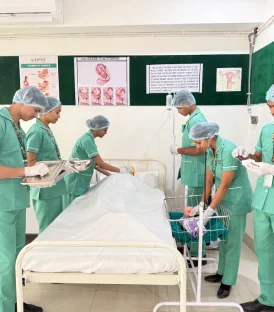December 22, 2023
Muscular dystrophy refers to a group of genetic disorders characterised by progressive weakness and degeneration of skeletal muscles. There are various types of muscular dystrophy, each resulting from specific genetic mutations that affect muscle structure and function. The most common and well-known form is Duchenne muscular dystrophy (DMD), predominantly affecting males.
Beyond DMD, other forms of muscular dystrophy include Becker muscular dystrophy, myotonic dystrophy, and facioscapulohumeral dystrophy, each presenting unique challenges and patterns of muscle involvement. While some forms progress slowly, others may result in more rapid muscle deterioration.
Despite ongoing research and advancements in understanding the genetic basis of muscular dystrophy, there is currently no cure for these conditions. Treatment primarily focuses on managing symptoms, improving quality of life, and providing supportive care. Physical therapy, orthopedic interventions, and assistive devices are commonly employed to address mobility issues.
The Impact of muscular dystrophy extends beyond the physical realm, affecting emotional and social well-being. Individuals with MD and their families often navigate challenges related to accessibility, education, and societal perceptions of disability. Advocacy groups and research organizations play a vital role in raising awareness, supporting affected individuals, and funding scientific investigations aimed at developing potential treatments and therapies.
In recent years, gene therapy and other innovative approaches have shown promise in preclinical studies, offering hope for future breakthroughs in the treatment of muscular dystrophy. As research continues, the goal remains to enhance the understanding of these complex disorders and to develop interventions that can mitigate symptoms and improve the overall quality of life for those affected by muscular dystrophy.

















